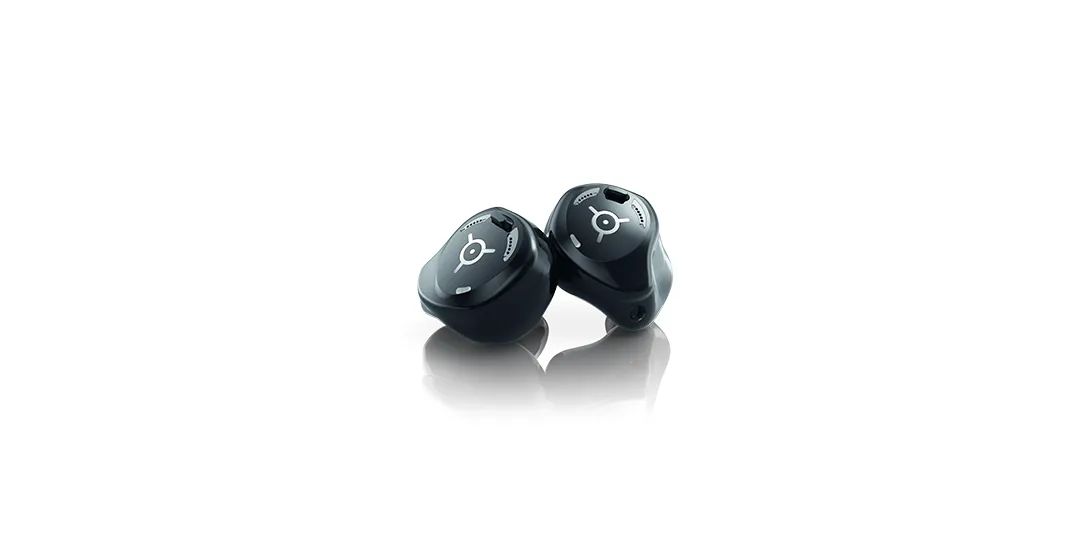The ringing in your ears: Practical tips for tinnitus relief

The ringing in your ears: Practical tips for tinnitus relief
7 min.
Publication Date: November 26, 2025
November 19, 2025
Tinnitus—often described as ringing, buzzing, or humming in the ears—is something many people live with daily. While there’s no one-size-fits-all cure, there are ways to manage it. If you’ve already explored the causes and you’re now wondering what to do about it, you’re in the right place.
This guide focuses on practical, everyday strategies that can help reduce the impact of tinnitus. From sound therapy and sleep routines to stress management and support options, these are tips you can try starting today:
Note: Our Hearing Care Providers (HCPs) are here to support your ear health and provide personalized guidance. However, if you're concerned about medical issues affecting your hearing, always consult with your healthcare provider as your first priority.
Daily lifestyle strategies
Tinnitus management starts with small, consistent changes to your daily routine. While these tips may not stop the ringing completely, they can help reduce its intensity, improve your focus, and make day-to-day life more manageable.
Reduce stress wherever possible. Tinnitus often feels worse when your nervous system is under strain. Try integrating stress-reduction techniques like deep breathing, guided meditation, or light stretching into your daily routine. Even a few minutes of quiet mindfulness can help your body respond more calmly to the ringing.
Protect your sleep. Sleep tips for tinnitus include keeping your bedroom cool and dark, avoiding screens before bed, and sticking to a consistent sleep schedule. Using a white noise machine or a soft nature sound playlist at night can also help distract your brain from the ringing and promote better rest.
Watch your caffeine, alcohol, and hydration. Everyone responds differently, but for many people, caffeine and alcohol can intensify tinnitus. Try reducing your intake gradually to see if it helps. Staying hydrated throughout the day also supports overall ear health.
Making small lifestyle changes for tinnitus don’t require expensive tools or a major overhaul. They’re simple shifts that can help you feel calmer, sleep better, and reduce the impact of tinnitus over time.
Sound-based solutions
One of the most effective ways to manage tinnitus is to give your brain something else to focus on. That’s where sound-based strategies come in. These techniques don’t make the ringing disappear, but they can help reduce how noticeable or bothersome it feels—especially in quiet environments.
Here are a few tools and techniques worth exploring:
- Sound therapy apps: Many apps offer customizable soundscapes, guided exercises, and built-in timers to help mask tinnitus and promote relaxation. Many are free or low-cost.
- White noise machines: These devices produce consistent background sound that can make tinnitus less noticeable, especially at night or during work. Choose from white, pink, or nature-based noise depending on what feels most soothing. You can even purchase a white noise machine through your local Connect Hearing clinic.
- Nature sound playlists: Soft rain, ocean waves, and forest sounds can all help distract from tinnitus. You can stream many of these on Spotify, YouTube, or other platforms as part of your daily routine.
- Hearing aids with masking features: If your tinnitus is connected to hearing loss, hearing aids can help restore environmental sound and include built-in programs to gently mask ringing.
Mindset and support
Tinnitus can be frustrating not only because of the sound itself, but because of how it affects your focus, mood, and overall sense of control. That’s why managing your mindset is just as important as managing your environment. Specialist-guided strategies like cognitive behavioural therapy (CBT) have shown promising results in helping people reframe how they respond to tinnitus. These approaches don’t eliminate the sound, but they can reduce how much attention your brain gives to it and how much it affects your well-being.
Emotional support is also key. Whether it’s a support group, a therapist who understands tinnitus-related stress, or even journaling about your experience, having an outlet can make it easier to cope. For some people, tracking when their symptoms are most noticeable can also reveal patterns or triggers they hadn’t considered. Feeling heard, validated, and less alone can ease the emotional toll that often comes with long-term tinnitus.
Even if the sound itself doesn’t change right away, your relationship to it can. And that shift can open the door to better focus, better sleep, and a greater sense of calm.
When to seek help
While many people manage tinnitus with self-care strategies, there are times when professional guidance is the best next step. You don’t need to wait until things feel unbearable; getting support early can help you feel more in control and reveal new options for relief.
Consider speaking with a Hearing Care Provider if:
- The ringing is constant or worsening, especially over several weeks
- It interferes with your sleep, focus, or mood, even after trying at-home strategies
- You also notice hearing loss, dizziness, or ear pressure
- The sound is only in one ear, which can sometimes point to more specific causes
- Tinnitus started suddenly or after a loud noise, such as a concert or work-related exposure
A hearing test can help determine whether hearing loss is contributing to your symptoms and whether devices like hearing aids with masking features could help. You may also be referred for further evaluation or support depending on your needs.
Book a free hearing test or find a Connect Hearing clinic near you to explore your options and next steps.



